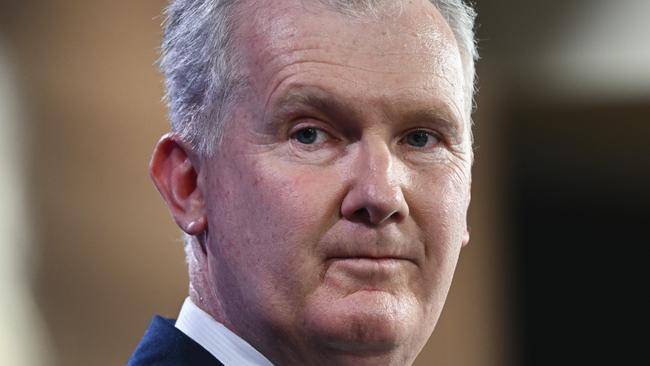IR bill takes workplaces further in wrong direction

That “nothing to see here” argument is being boosted by ACTU secretary Sally McManus. The new laws are a triumph for unions. But feigning disappointment, Ms McManus complained they were too modest. She was critical of the exemption the government had given small business. “We don’t believe people should have less rights simply because of the size of their employer,” she complained. The ability of all employers, especially small businesses, to pay higher wages and maintain jobs does not appear to compute with the ACTU.
The reality of the bill, workplace editor Ewin Hannan writes, lies somewhere between the calculated exaggerations of employers and Mr Burke’s deliberate downplaying of its impact. The bill has four main prongs. It will crack down on what Labor and the unions regard as exploitation of workers by labour-hire firms; provide minimum standards to gig workers; criminalise wage theft by employers; and legislate a new definition to determine when an employee can be classified as casual.
Australian Industry Group chief executive Innes Willox says the legislation will add further complexity to an already byzantine workplace relations system and make it harder for businesses to hire staff and manage their workplaces. “The changes will drastically limit the ability of employers to offer new casual employees the kind of arrangements currently commonly in place and which often suit workers,” Mr Willox said. “Make no mistake, there will be vast numbers of casual employees who will have their livelihoods put at risk by these changes if they see the light of day.”
Assuming the legislation eventually passes the Senate, its impact on employment, profits and investment will become evident across the coming year when the outlook is expected to be difficult. Economic growth is expected to slow as the biggest quarterly drop in business profits on record risks driving the economy backwards in the three months to June. A 21 per cent collapse in quarterly mining profits is the main contributor to the fall, as a faltering Chinese economy and slowing global demand have pushed commodity prices lower, Patrick Commins reports on Tuesday. In contrast to the falling profits, total wages paid in the quarter lifted by 1.8 per cent from March and were almost 10 per cent higher than a year ago as employment, hours worked and pay rates increased.
The recent Intergenerational Report underlined the need for productivity increases to meet the demands of caring for an ageing population, the NDIS, healthcare, defence costs and government interest repayments. Long term, one of the major problems of this and the Albanese government’s previous IR changes, which delivered the unions multi-employer bargaining, is that they do nothing to encourage business investment or enterprise, or to drive sustainable wages growth. Instead of simplifying an already complex system and providing flexibility to suit workers and employers, they take the system further back into the decades before the reforms of the Hawke-Keating Accords and the Howard government. They take the system further in the wrong direction.


Employment and Workplace Relations Minister Tony Burke is doing an unconvincing job of trying to walk both sides of the street with his second tranche of industrial relations changes. On the one hand, he has promised the Closing Loopholes Bill, introduced to parliament on Monday, would be “life changing” for some workers. On the other hand, in an effort to placate employers, he is trying to play down its potential impact. Citing Department of Employment and Workplace Relations data, Mr Burke says the changes will have a negligible economic impact, affecting only 67,000 workers.